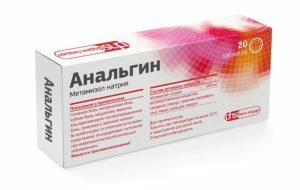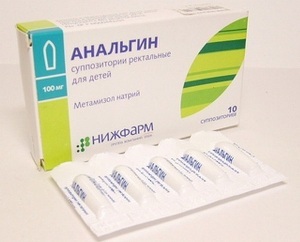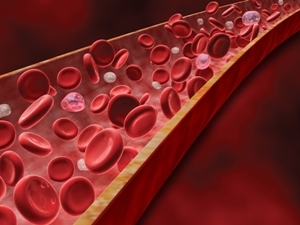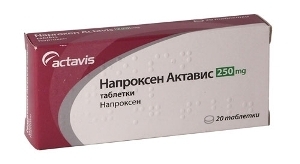 One of the most popular and, rather, traditional analgesics is Analgin. It was always used to reduce the pain syndrome, especially when problems with the teeth. Since recently, everywhere it is mentioned that the drug is not recommended for frequent use, in many countries it is generally prohibited.
One of the most popular and, rather, traditional analgesics is Analgin. It was always used to reduce the pain syndrome, especially when problems with the teeth. Since recently, everywhere it is mentioned that the drug is not recommended for frequent use, in many countries it is generally prohibited.
For this reason, it is necessary to understand what the mechanism of action of the drug and whether it can be replaced by better analogs.
Contents of
- Does analgin help with toothache?
- Mechanism of Action
- What are the forms and how to take?
- Contraindications and side effects
- Reasons for prohibition in other countries
- Analgesics - analogues of the preparation
Does analgin help in toothache?
Analgin acts at the expense of the active substance in its composition, metamizole sodium. It aims at:
-
 pain relief;
pain relief; - reduction of inflammation;
- reduction of heat.
Compared to analogues, it has a weakly expressed effect, so after its administration the pain fades, but does not disappear completely. For this reason, it is used for minor pain, including dental pain. When the pain syndrome is pronounced and already unbearable, any drug based on metamizole sodium will not help.
Analgin can be used if a person is not at risk and has no contraindications, but should strictly follow the instructions for use, without increasing the dose and choosing the right tactics of treatment correctly. With toothache - this is the most commonly used drug, but in modern conditions it is rather traditional and ineffective.
Mechanism of action
Analgin refers to non-steroidal anti-inflammatory drugs, the main focus of which is to suppress the production of prostaglandins responsible for pain. The enzyme provokes the inflammatory process, which causes a person to receive a strong impulse, expressed in the pain syndrome.
 With toothache, the medication does not always help, because it has a more antipyretic effect, relieving pain in moderation. In the presence of serious dental problems, the cause of which is the inflammatory process, hope that Analgin will not stop him. In this case, you need to see a doctor.
With toothache, the medication does not always help, because it has a more antipyretic effect, relieving pain in moderation. In the presence of serious dental problems, the cause of which is the inflammatory process, hope that Analgin will not stop him. In this case, you need to see a doctor.
The effect is manifested after 20-40 minutes after taking, but only after two hours it will manifest its properties to the maximum. Despite the less pronounced ability to suppress pain, the drug along with the strongest drugs, has a lasting effect up to 5-6 hours.
What are the forms and how to take?
Analgin is available in various forms, which makes it suitable for almost all population groups. The drug is found in the form:
-
 tablets;
tablets; - capsules;
- solution for injection;
- candles.
Despite the abundance of dosage forms, tablets are most often used to reduce toothache. Rectal suppositories can be prescribed for children not to reduce pain when teeth are teething, but to eliminate the elevated temperature typical of this situation.
Adults are allowed to drink 1 tablet three times a day at regular intervals. The medicine is allowed for use by children, but must be older than a year. From one year to 14 years, a single dose is half a tablet, you can give the medicine no more than twice a day. With 14 years give 1 tablet 2-3 times a day.
 Analgin against toothache is not only used orally, it is often applied directly to the discomfort causing the tooth. So, the effect is achieved more quickly, because metamizole sodium acts directly on the inflammation focus. This method is not allowed in all cases.
Analgin against toothache is not only used orally, it is often applied directly to the discomfort causing the tooth. So, the effect is achieved more quickly, because metamizole sodium acts directly on the inflammation focus. This method is not allowed in all cases.
When the tooth hurts slightly and is not outwardly damaged, in no case should you apply a tablet to it. This will provoke the destruction of enamel, which will only exacerbate the problem and cause an even more pronounced pain syndrome. Apply Analgin allowed only to a half-ruined tooth, badly damaged by caries.
Contraindications and side effects of
The drug has a fairly impressive list of contraindications, which is often better to give preference to other nonsteroidal drugs. Among them:
- pregnancy( especially in the first and second half of the III trimesters);
-
 lactation period;
lactation period; - children under one year of age( the drug is prohibited in particular at the age of less than 3 months with a body weight of less than 5 kg);
- problems with bronchial tubes, in particular, "aspirin asthma";
- blood diseases, for example, leukopenia, hemolytic anemia;
- disorders of liver and kidney function;
- deficiency of glucose-6-phosphate dehydrogenase;
- Hypersensitivity to the drug components( butadione tribuzone).
 One of the most serious complications after taking Analgin is agranulocytosis .It manifests itself by a sharp decrease in the level of neutrophils in the blood. Pathology causes a decrease in immunity, reduces the response to viruses and bacteria.
One of the most serious complications after taking Analgin is agranulocytosis .It manifests itself by a sharp decrease in the level of neutrophils in the blood. Pathology causes a decrease in immunity, reduces the response to viruses and bacteria.
This problem often occurs with frequent use of the drug and in excess of the allowable rate. However, there are cases when the disease has appeared after only one tablet. In addition, after taking Analginum, allergic reactions may appear, often pressure decreases or anuria appears.
Use during pregnancy can cause pathologies in the development of the child. When taking medication during lactation, the active substance can get into the milk. In cases of overdose, there are signs of intoxication, expressed by nausea, headache, weakness, confused consciousness. It is necessary to wash the stomach, take laxatives. It is forbidden to combine with other analgesics.
Reasons for prohibition in other countries
In 75 countries, Analginum, like other preparations containing metamizole sodium, are prohibited for use. This is associated with a high risk of getting such a complication as agranulocytosis. In 7% of cases the problem ends with the lethal outcome of .The result of numerous studies in Sweden, Germany, the United States revealed a direct relationship between the appearance of the disease and the intake of drugs with metamizole sodium. In Russia, Analgin is not a prohibited analgesic, it is sold over-the-counter, but was excluded from the list of medications issued on preferential terms.
 Separately it is worth noting that metamizole sodium in its pure form is less dangerous than when interacting with other substances. In this connection, it is the tablet form that causes the most doubts and contradictions. If you take a medicine to relieve toothache, you can limit one or two tablets.
Separately it is worth noting that metamizole sodium in its pure form is less dangerous than when interacting with other substances. In this connection, it is the tablet form that causes the most doubts and contradictions. If you take a medicine to relieve toothache, you can limit one or two tablets.
The longer the course of taking Analgin, the higher the risk of complications. In no case should you take medicine for more than 10 days. In some cases, this period is too long. When deciding whether or not Analgin is safe and worth accepting, one should take into account the fact that today you can find analogues without serious consequences.
Read more about the reasons for the drug ban in Europe and North America in this video.
Analgesics are analogs of the preparation
 . Since analgin administration has serious consequences and it can not be called the most effective remedy, it is better to give preference to other drugs with another active substance in the toothache. These include Ketorol, Ketanov, Ketorolak, Dolak, Naise, Naproksen .
. Since analgin administration has serious consequences and it can not be called the most effective remedy, it is better to give preference to other drugs with another active substance in the toothache. These include Ketorol, Ketanov, Ketorolak, Dolak, Naise, Naproksen .
All of the listed medicines are able to cope with pain in the oral cavity much faster. But there are a number of complicating factors.  Firstly, most of them are prescription-dispensed, so a visit to a dentist or therapist is mandatory. Secondly, all of them at a price much higher than the usual Analgin. It is these reasons that still make analgesics with metamizole sodium in the composition popular.
Firstly, most of them are prescription-dispensed, so a visit to a dentist or therapist is mandatory. Secondly, all of them at a price much higher than the usual Analgin. It is these reasons that still make analgesics with metamizole sodium in the composition popular.
Analgin in our country is taken for pain relief, including with toothache. But modern research and new technologies provide a wide range of alternative options that do not have serious consequences and a large list of limitations. Even a strong toothache can sometimes not be compared with the risk of a negative effect from taking traditional for Russia Analgin.
